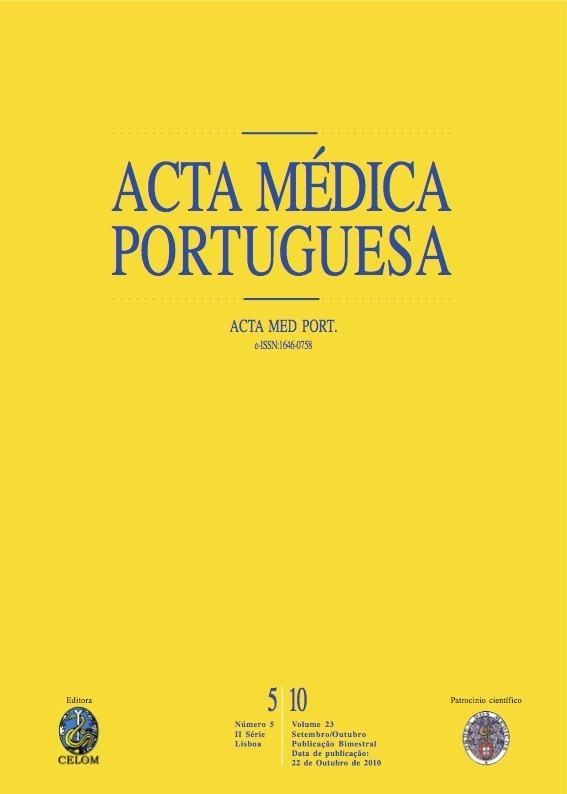A relação dos doentes com a receita médica - um estudo observacional em populações urbanas no centro de Portugal.
DOI:
https://doi.org/10.20344/amp.729Resumo
The vast majority of General Practice/Family Medicine appointments end with a pharmacological prescription. It is therefore important to study the expectations facing the reasons to treat and the value attributed to the prescribed medicines, by patients.To know the expectations of patients facing the decision to treat and the therapeutic value attributed to prescribed medicines, by gender, academic grading, profession and age groups.In an observational study using a validated questionnaire, a non probabilistic convenience population representing, by gender and age groups, the universe of the urban attendants of a Primary Care facility in central Portugal, was studied. The questionnaire was applied, after informed consent, in an interview with a psychologist, for anonymous self-fulfillment. Descriptive and inferential statistics were performed.A population of 180 individuals was studied, mean age 47,3 ± 17,0 years (ns by gender) median 45 years, mode 29, being 85 males (47,2%). No differences were found by gender, profession and age groups. There is a clear preference for the treatment of the diseases the doctor has diagnosed. A frequency of 2,8% would prefer to define the medical prescription. Patients think that prescribed medicines aim to increase health (79,5%) and to treat the diagnosed diseases (67,6%). Older and non actives agree that prescribed medicines are targeted to the problems they presented, while younger ones medicines are targeted for their diseases. For the active ones prescribed medicines are to improve health.Patient's expectations about the decision of treating are technically oriented and medicines are thought of as a tool for healing and also as a mean to increase health. These two perspectives urge general practitioners/family doctors to make good patients medicines information and to define therapeutical objectives with patients.The knowledge of the patients' expectation on pharmacological therapy can help increase its results, once patients wish to be treated of the diseases doctors diagnose and think that medicines cure diseases and increase health.Downloads
Downloads
Como Citar
Edição
Secção
Licença
Todos os artigos publicados na AMP são de acesso aberto e cumprem os requisitos das agências de financiamento ou instituições académicas. Relativamente à utilização por terceiros a AMP rege-se pelos termos da licença Creative Commons ‘Atribuição – Uso Não-Comercial – (CC-BY-NC)’.
É da responsabilidade do autor obter permissão para reproduzir figuras, tabelas, etc., de outras publicações. Após a aceitação de um artigo, os autores serão convidados a preencher uma “Declaração de Responsabilidade Autoral e Partilha de Direitos de Autor “(http://www.actamedicaportuguesa.com/info/AMP-NormasPublicacao.pdf) e a “Declaração de Potenciais Conflitos de Interesse” (http://www.icmje.org/conflicts-of-interest) do ICMJE. Será enviado um e-mail ao autor correspondente, confirmando a receção do manuscrito.
Após a publicação, os autores ficam autorizados a disponibilizar os seus artigos em repositórios das suas instituições de origem, desde que mencionem sempre onde foram publicados e de acordo com a licença Creative Commons









